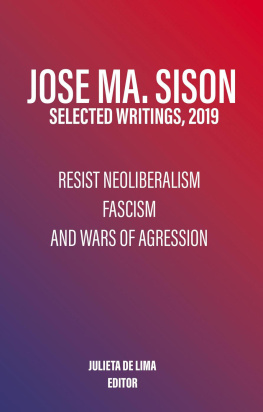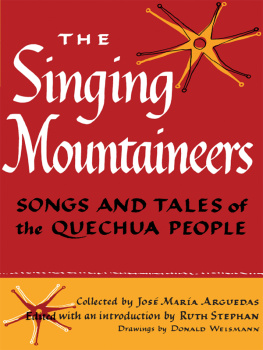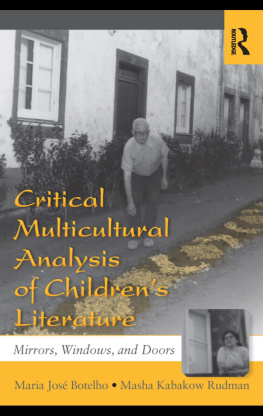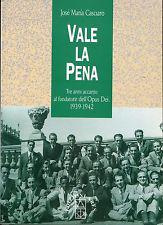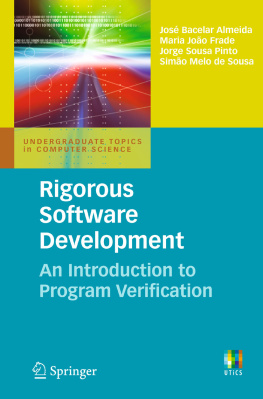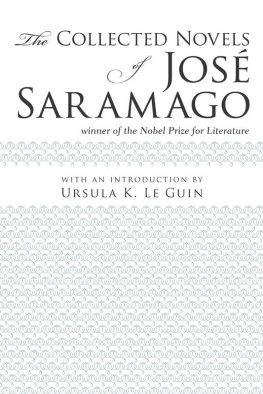José María Sison - Struggle for national democracy
Here you can read online José María Sison - Struggle for national democracy full text of the book (entire story) in english for free. Download pdf and epub, get meaning, cover and reviews about this ebook. year: 1967, publisher: Progressive Publications, genre: Politics. Description of the work, (preface) as well as reviews are available. Best literature library LitArk.com created for fans of good reading and offers a wide selection of genres:
Romance novel
Science fiction
Adventure
Detective
Science
History
Home and family
Prose
Art
Politics
Computer
Non-fiction
Religion
Business
Children
Humor
Choose a favorite category and find really read worthwhile books. Enjoy immersion in the world of imagination, feel the emotions of the characters or learn something new for yourself, make an fascinating discovery.

- Book:Struggle for national democracy
- Author:
- Publisher:Progressive Publications
- Genre:
- Year:1967
- Rating:4 / 5
- Favourites:Add to favourites
- Your mark:
- 80
- 1
- 2
- 3
- 4
- 5
Struggle for national democracy: summary, description and annotation
We offer to read an annotation, description, summary or preface (depends on what the author of the book "Struggle for national democracy" wrote himself). If you haven't found the necessary information about the book — write in the comments, we will try to find it.
Struggle for national democracy — read online for free the complete book (whole text) full work
Below is the text of the book, divided by pages. System saving the place of the last page read, allows you to conveniently read the book "Struggle for national democracy" online for free, without having to search again every time where you left off. Put a bookmark, and you can go to the page where you finished reading at any time.
Font size:
Interval:
Bookmark:
The Second Propaganda Movement
It was Senator Claro Mayo Recto who first expressed the need for a second propaganda movement. It was his intention in 1960 to engage in an intensive and extensive anti- imperialist campaign tour after coming from his journey abroad. He was never able to do what he intended, but his anti-imperialist legacy remains with us.
This anti-imperialist legacy consists of the body of ideas and principles which he defined in the course of his nationalist crusade which he launched in the early 1950s. There was really no need for him to make any formal announcement that he and other patriots would embark on the Second Propaganda Movement. He had started it the moment he began to relate the struggle of the present to the struggle of those who had successfully fought and isolated the first colonial tyranny, but who did not quite succeed in preventing the coming of a new foreign tyranny, U.S. imperialism.
It is important to speak of the Second Propaganda Movement because we need to recall the unfinished tasks of the Philippine Revolution. The Second Propaganda Movement is required to arouse our nation anew to the struggle for the fulfillment of the national-democratic tasks of the Philippine Revolution.
The Second Propaganda Movement occurs as a resumption of the First Propaganda Movement and of the Philippine Revolution even as conditions are far different from those obtaining during the time of the first nationalist propagandists. While old problems have been carried over to the present, new ones have also arisen to make our national struggle more difficult and more complicated.
The Second Propaganda Movement must therefore be more vigorous and resolute. It should be a propaganda movement of a new type, with a new class leadership and a new alignment of forces and with a new ideological and political orientation more advanced and more progressive, if we are to be on the tide of a higher stage of historical development and if we are to win the struggle against an enemy far stronger and far more clever than the old type of colonialism. In other words, the Second Propaganda Movement must surpass the first because it occurs at a higher stage of historical development and because the enemy we face, with its domestic allies, is stronger and more advanced than the old colonialism it replaced.
At the present, however, U.S. imperialism and feudalism, which are the principal targets of the Second Propaganda Movement, are strategically weak as these are confronted with the anti-imperialist and anti-feudal unity of the people under the leadership of the working class. Furthermore, on a world scale, U.S. imperialism and feudalism are fast losing out before the surging forces of national-democratic and socialist revolutions. The present tasks of the Second Propaganda Movement are huge but conditions for its success are also good.
The Second Propaganda Movement is first of all a political movement. It is an educational movement with political aims; for after all there is no type of education or culture that is detached from politics. It aims to replace the old type of education and culture while retaining only its progressive elements. It aims to prepare and guide the people for struggle against their foreign and feudal exploiters. It aims to effect results and it proceeds from a particular political standpoint. Class interests, whether of the exploited or of the exploiters, generate political ideas, values and attitudes that inspire and guide men to action.
Learn from the Masses
In order to move the people to obtain certain results by their collective action, one must first determine their motives based on their concrete conditions and class interests. It is necessary for the Second Propaganda Movement to learn from the masses their conditions, problems, interests and aspirations before it dares teach them what to do. The Second Propaganda Movement is a mass movement in the most genuine sense with the mobilization and victory of the masses as the main objective.
The principle of learning from the masses should never be forgotten even if at this point we are able to take advantage of a fund of general knowledge gathered from past experiences. General or second-hand knowledge is important but what is always more important is the first-hand knowledge of the masses or learning from the masses because it assumes being constantly with them and merging with them. Learning from the masses and being with them will make our generalizations for action and formulation of solutions more correct and more dynamic. We become immediately one with the masses in their mobilization.
The Second Propaganda Movement should never be a campaign to command or dictate above the heads of the masses. One should not throw big theories and big slogans without first learning the concrete conditions and problems of the people. A knowledge of these from first-hand observation, from practice with the masses and from listening to the masses, would enable us to test and verify theories, enrich them and explain them to the people in the most concrete terms that they immediately understand.
We must advance from the behavior and performance of the First Propaganda Movement which unfolded as a movement of exiles in a foreign city while it was supposed to be concerned with Philippine conditions and problems. It will also not do now for the ilustrados or the petty bourgeoisie to assume leadership by simply brandishing their formal or artificial classroom knowledge, or by impressing the people with their bourgeois education.
The agents of U.S. imperialism, the landlords and religious sectarians themselves are trying to mingle with the masses, under the cover of the powerful mass media that they own and control and under the cover of many pretexts with the sole objective of confusing and deceiving the people.
The activists of the Second Propaganda Movement have no alternative but to take the mass line, merge with the masses and learn from the masses. It does not suffice now even to issue manifestoes and proclamations from the cities and big towns where the lazy leaders are fond of sitting out a revolution. The success of the Second Propaganda Movement will be determined by those who choose to go to the masses and be with them.
In the Second Propaganda Movement, it is necessary to determine whose political ideology should lead the people.
There is a presumption on the part of the bourgeoisie and the landlords that only those with high formal schooling are fit to lead the people. They talk of the people disdainfully as illiterate and uneducated. By asserting that only those educated in the bourgeois or conservative fashion are fit to lead, they wish to entrap the masses deeper within the system of exploitation.
The Second Propaganda Movement should reject this dangerous and undemocratic presumption as a lie intended to mislead the masses. We have given to the products of colonial and neocolonial education more than three centuries and many more decades to solve the problems of the masses. But what have they done? We have given the bright boys or the technocrats of the bourgeoisie and the landlord class more than enough time and yet they are either too dull or too dishonest to see such basic problems as U.S. imperialism and feudalism.
What a pity that the educated elite does not see clearly the basic problems that are U.S. imperialism and feudalism which the masses, with lesser formal education, can see and feel most acutely, as they are the ones most adversely affected. The masses are in a position to perceive not only their own sufferings but also the benefits that accrue to a few from U.S. imperialism and feudalism.
What the masses experience they can immediately grasp. They can also easily grasp the correct solutions based on the correct analysis of their problems. It is the self-satisfied statesmen, educated men and publicists of the bourgeoisie and the landlords who will consider such terms as imperialism and feudalism too high above their heads, not so much because they are dull but because they are dishonest and are afraid of exposing the negative character of the system that benefits them.
Font size:
Interval:
Bookmark:
Similar books «Struggle for national democracy»
Look at similar books to Struggle for national democracy. We have selected literature similar in name and meaning in the hope of providing readers with more options to find new, interesting, not yet read works.
Discussion, reviews of the book Struggle for national democracy and just readers' own opinions. Leave your comments, write what you think about the work, its meaning or the main characters. Specify what exactly you liked and what you didn't like, and why you think so.

